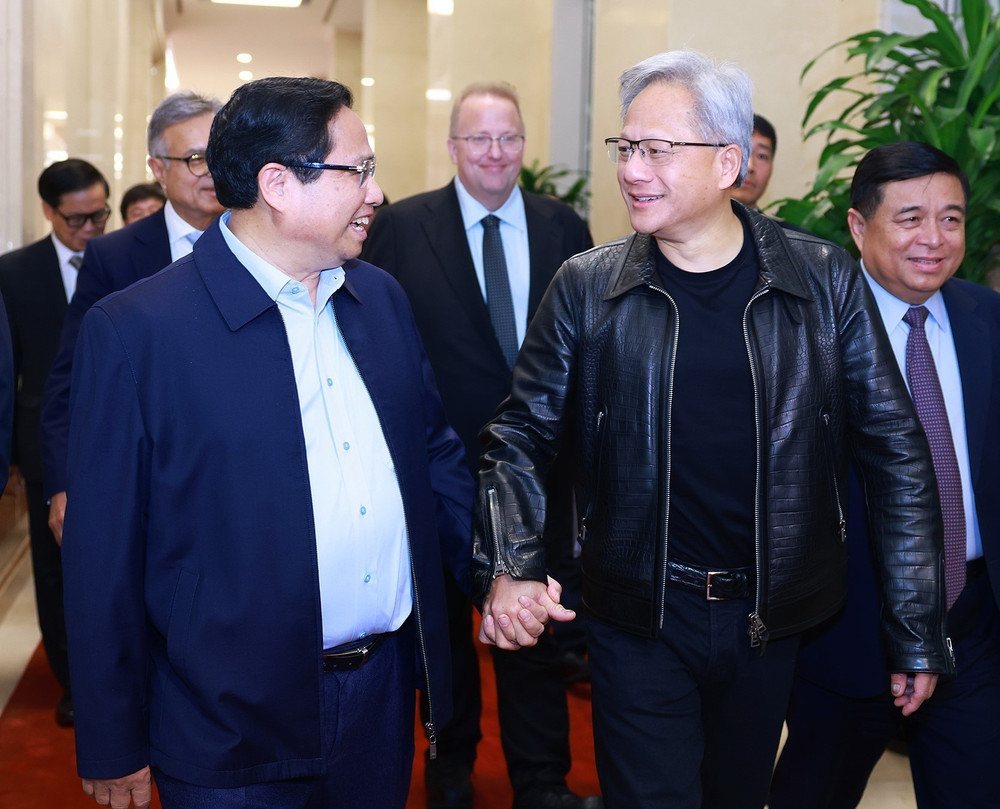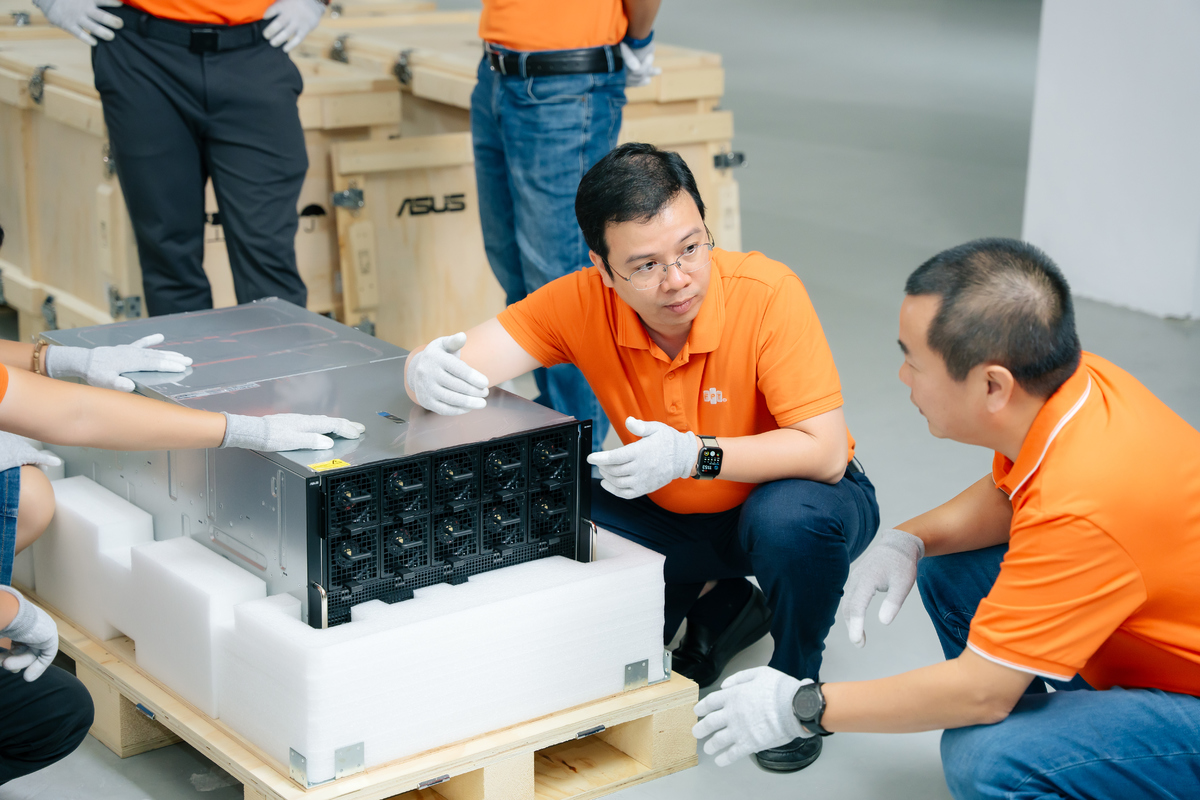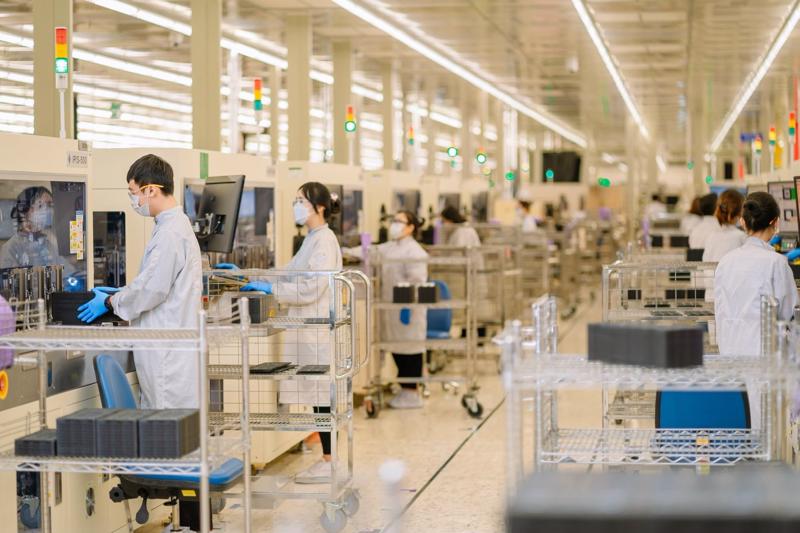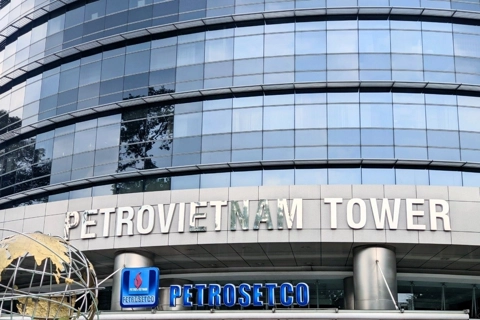AI set to drive Vietnam's economic growth in 2025
In 2024, Vietnam's digital economy saw a major uptick in interest in artificial intelligence (AI).
As Vietnam positions itself to harness the potential of AI, key investments and partnerships, such as NVIDIA's acquisition of VinBrain and the establishment of AI research centers in the country, are critical to driving the country's digital economy toward its ambitious growth goals.
Collaborative efforts to drive AI development
| Prime Minister Pham Minh Chinh (left) and Jensen Huang, CEO of NVIDIA at a recent meeting. Photo: Vietnam News Agency |
One memorable moment from last year was when Prime Minister Pham Minh Chinh shared a beer with Jensen Huang, CEO of U.S. chip maker NVIDIA, on Ta Hien Street, one of the most backpacker-packed streets in Hanoi's Old Quarter.
Earlier, the two leaders witnessed the signing of a cooperation agreement to establish the Vietnam Research and Development Center (VRDC) and an AI data center in the country. The VRDC will be one of NVIDIA's three major AI research centers in the world, along with Silicon Valley in the United States and another in Taiwan, China.
A year ago, during a meeting with Viettel Group, NVIDIA's CEO assured that with a pool of one million software engineers, Vietnam has the potential to retrain its workforce for AI and position itself as a leading exporter of AI solutions globally. Following discussions with the US giant, Viettel, the military-run telecom service provider, is investing around $100 million to build a large-scale AI data center.
Meanwhile, FPT, Vietnam’s tech firm, has formed a comprehensive strategic partnership with NVIDIA, committing $200 million to build an AI Factory that will provide a cloud computing platform for AI research and development in Vietnam.
During the visit, the US giant not only announced plans to open a research and development center in Vietnam, but also committed to moving manufacturing supply chain facilities to the country, with investments totaling billions of dollars. "The partnership with NVIDIA demonstrates the Vietnamese government's determination to 'catch up, progress with and surpass' in AI - one of the fastest growing technology fields today," said Nguyen Chi Dung, Minister of Planning and Investment.
The minister said that the establishment of a world-class AI R&D center, supported by a leading technology giant like NVIDIA, is essential for the development of Vietnam's AI ecosystem. It will be a catalyst for the research, development, and application of advanced AI technologies.
This collaboration is expected to spur significant technological progress in Vietnam and encourage other global high-tech investors, especially in the AI sector, to consider investing in the country, Dung said.
Just days after the symbolic "beer diplomacy" on Ta Hien Street, Prime Minister Pham Minh Chinh said at the first meeting of the National Steering Committee for the Development of the Semiconductor Industry that as digital transformation is broad, the focus must be on AI research and development based on local data - asserting that Vietnam's AI initiatives should leverage its data resources.
Great opportunity in the AI wave
| Last May, FPT imports its first DGX H100 server and launches a strategic partnership with NVIDIA to boost AI development in Vietnam. Photo: FPT |
FPT is one of the first companies in Vietnam to invest heavily in AI, having done so over a decade ago. "Big companies are spending hundreds of billions of dollars on AI, and their investment rates could increase every year. The market demand is so great that NVIDIA, a $3 trillion company, is struggling to keep up. Many countries are waiting, but Vietnam is ready," said Truong Gia Binh, Chairman of FPT.
He recalled a conversation with Jensen Huang in which he highlighted Vietnam's pool of one million IT engineers and half a million software developers. Huang responded, "No doubt, Vietnam is definitely on par with the most advanced nations in the world."
"This sentiment reflects Huang's decision to make Vietnam a second home for NVIDIA," said Binh. "NVIDIA is a very special company that chooses only the best. The fact that Vietnam was chosen means that Vietnamese people not only have potential, but have really convinced the world of their capabilities."
Meanwhile, Nguyen Trung Chinh, Chairman of CMC Corporation, believed that AI is not just a technology, but a significant development force that profoundly affects all aspects of life. He asserted that AI is a breakthrough driver, triggering rapid and comprehensive changes in the entire socio-economic landscape.
"AI is expected to contribute $15.7 trillion to the global economy by 2030, and increase labor productivity by 40% by 2035. In Vietnam, AI is expected to contribute between $150 billion and $200 billion to GDP by 2030," he said.
Minister of Information and Communications Nguyen Manh Hung reiterated that AI is the core technology of the Fourth Industrial Revolution, similar to the steam engine in the first revolution, the generator in the second, and the personal computer in the third. "Virtual assistants may be the most important application of AI," he noted.
A recent report from Google found that if AI tools are widely adopted, Vietnamese businesses could generate an estimated US$79.3 billion by 2030, accounting for nearly 12% of the country's GDP. "AI will be a key factor in realizing this forecast for Vietnam," said Marc Woo, CEO for Vietnam at Google Asia-Pacific.
Google highlighted Vietnam's ambitious digital roadmap, which emphasizes AI and semiconductor technology alongside goals for economic growth and improved public services. By 2030, the country's digital economy is expected to grow elevenfold to reach $220 billion, nearly half of its current GDP.
Advocating for a robust AI legal framework
| Vietnam is drafting legislation to establish a legal basis for AI. Photo: IPV |
Vietnam is taking its first steps in developing the AI industry. However, the rapid advancement of AI also presents significant management and governance challenges, not only in Vietnam, but around the world.
Minister Nguyen Manh Hung said the country is drafting legislation to establish legal principles for AI, emphasizing that AI should serve human prosperity and happiness. The principles include transparency, accountability, fairness, non-discrimination, respect for ethical values and human rights, privacy, inclusive access, security, responsible innovation, and risk-based management.
Nguyen Trung Chinh of CMC Group also advocated for improving the institutional and legal framework for AI in Vietnam. He emphasized the need to develop appropriate legal regulations to facilitate the nationwide development and application of AI, and to ensure safety and risk management, especially in high-impact sectors such as healthcare, education, transportation, and finance.
"Governments need to set incentive policies to encourage the development of AI across all sectors, from manufacturing to healthcare and public services. Importantly, policies must ensure job security and set clear ethical standards for AI applications, putting people at the heart of sustainable development," he recommended.
In a recent development, the Vietnam Software and IT Services Association (VINASA) announced the establishment of an AI Ethics Committee to guide the development of AI in Vietnam. This committee will ensure that AI is used with ethical standards, promote innovation while balancing social benefits, and create a conducive legal environment for AI.
"This is a testament to Vietnam's vision to play a responsible leadership role in the AI era. As AI develops rapidly, bringing unprecedented opportunities and challenges, the need for responsible governance has never been more urgent," Binh said.
Recently, the Prime Minister called for the establishment of a governance framework for AI in Vietnam, focusing initially on ethical guidelines, governance structures, risk management, evaluation frameworks, and standards for AI products. The Ministry of Science and Technology, in consultation with experts, is also developing principles and guidelines for responsible AI in Vietnam.
These developments give rise to hope that the AI and semiconductor sectors will emerge as one of the main pillars of the Vietnamese economy in the near future.















